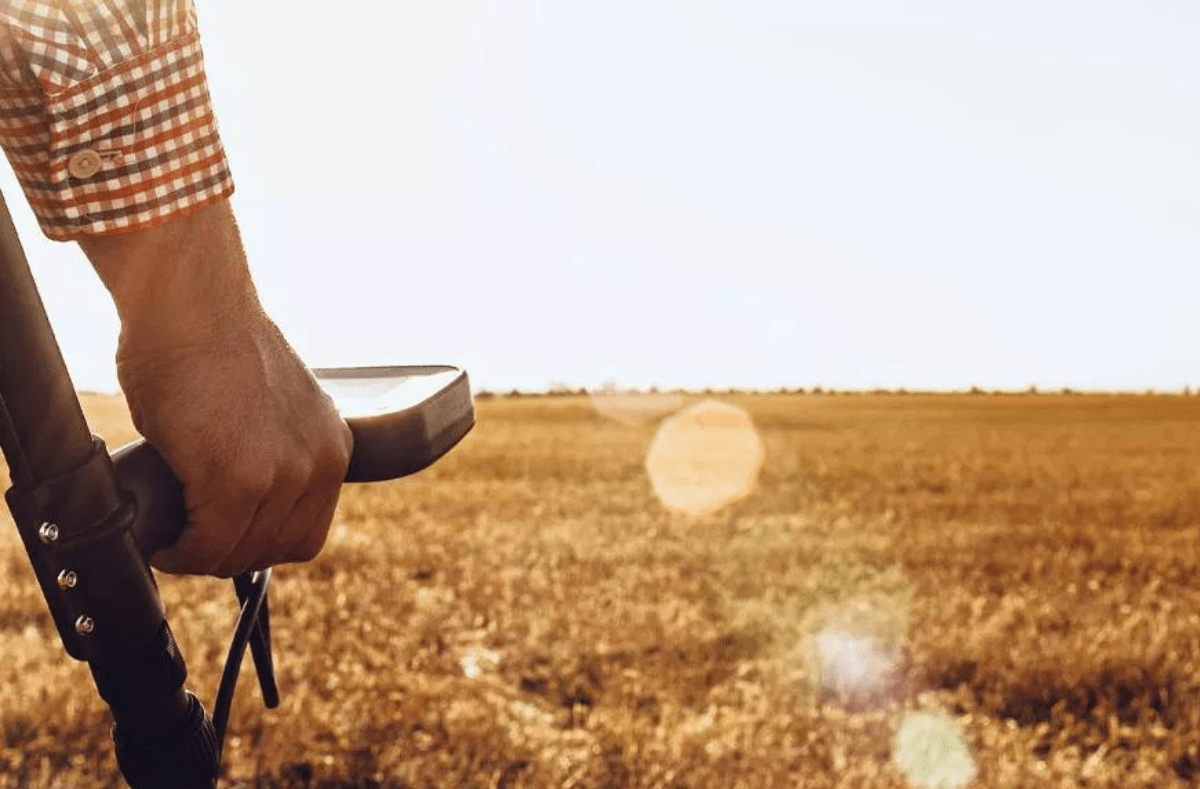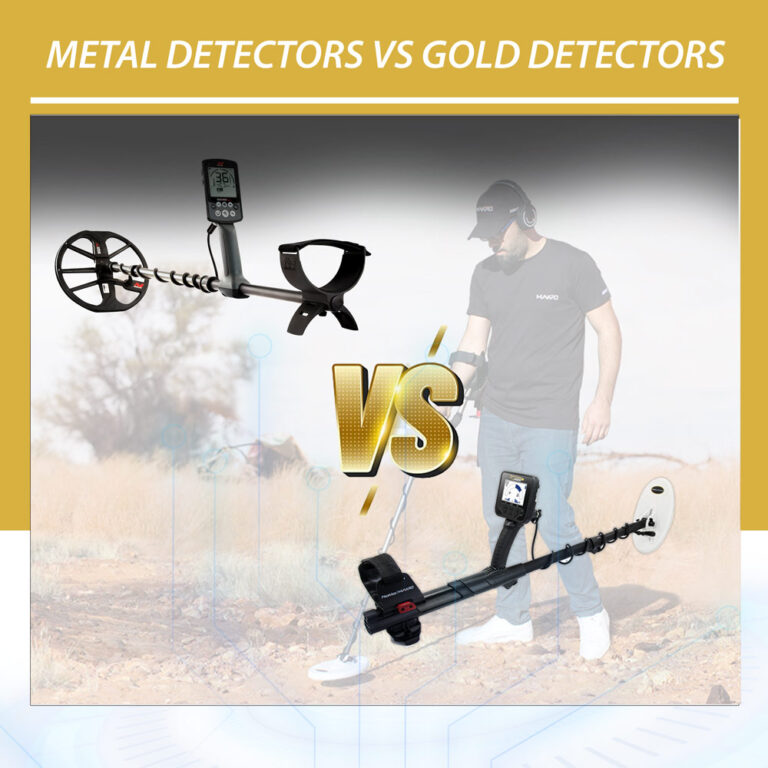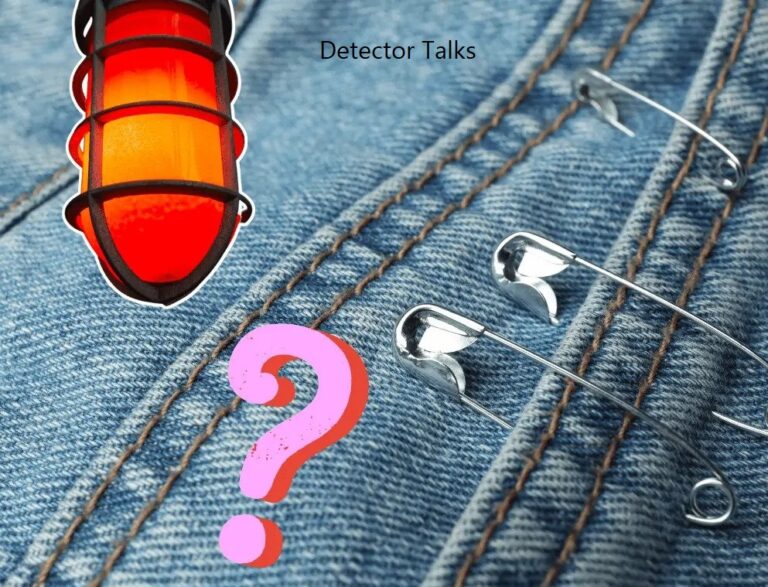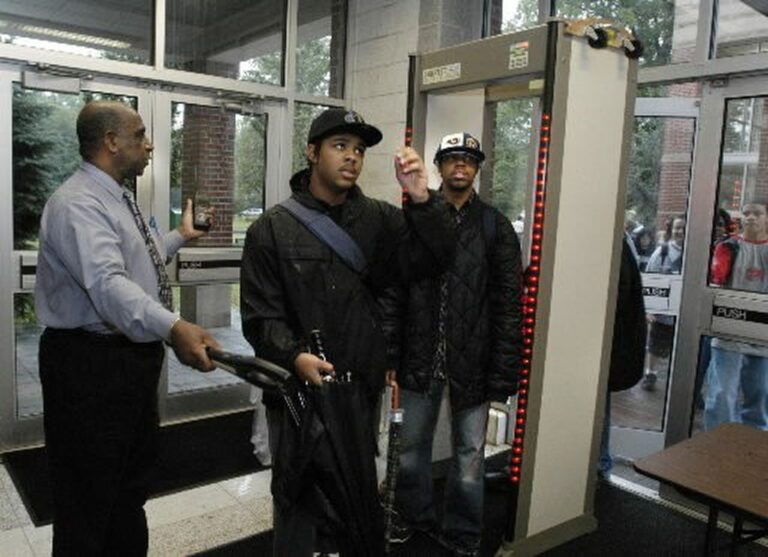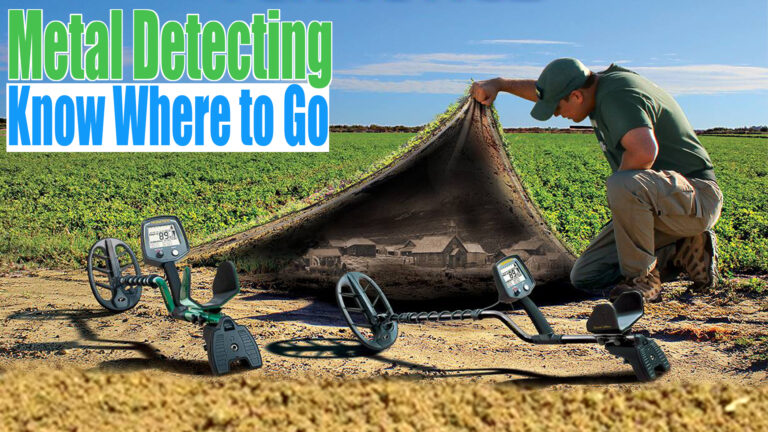Where to Use a Metal Detector
There are a few things to consider when deciding where to use a metal detector. The type of terrain, the amount of trash, and the likelihood of finding valuable items are all essential factors. Beaches are one of the most popular places to use a metal detector.
The sand is often loose and easy to dig in, and there are usually plenty of people around to help if you find something heavy. However, the water can be challenging, and you may have to wade out quite far to find anything suitable. Parks can also be good places to look for lost treasures.
There is usually less trash than on beaches, and the ground is generally reasonably firm. However, you may have to deal with more leaves and other debris, making finding small items challenging.
If you’re looking for a new hobby or just curious about what kinds of things you can find with a metal detector, you might wonder where to use one.
Here are a few ideas to get you started:
- The beach is a great place to use a metal detector. You never know what kind of treasures you might find buried in the sand! Just respect other people’s space, and don’t dig too deep.
- Parks are another great option, primarily if they’re known for being historical sites. You might find old coins or other artifacts that can tell us more about the past.
- If you’re feeling adventurous, you can even try using your metal detector in your backyard! Who knows what kinds of things your neighbors have lost over the years?
Best Places to Use a Metal Detector Near Me
When looking for lost items, there is no better tool than a metal detector. But where are the best places to use one? If you’re like most people, you don’t have any idea.
Here’s a list of the five best places to use a metal detector:
- Find Lost Jewelry – The Beach is probably the most obvious choice, but it’s also one of the best. There’s nothing quite like finding lost jewelry in the sand.
- Your Yard – You’d be surprised how many things get lost in your backyard. From keys to earrings, there’s no telling what you might find.
- A Park – Parks are great because they have a lot of foot traffic. This means that there are plenty of opportunities for things to get lost.
- A Campground – Bring your metal detector if you’re camping. People lose all sorts of stuff at campgrounds, from phones to tents (yes, people have lost entire tents!).
- Your Neighborhood – Sometimes, the best place to look for lost items is right in your neighborhood. Start by checking sidewalks and streets, then move to parks and other public areas.
Where Can You Metal Detect Without Permission
Metal detecting is a hobby that people of all ages can enjoy. It’s a great way to get outdoors, explore new places, and find hidden treasures! However, before you start metal detecting, it’s essential to make sure you have permission from the landowner.
There are many places where you can metal detect without permission. These include public parks, beaches, and forests. You can also search for lost items on your property or in a friend’s backyard.
If you want to venture further afield, plenty of abandoned properties and ghost towns are perfect for exploring with a metal detector. Before searching any area, research the local laws and regulations regarding metal detecting. In some places, such as national parks, it is not allowed.
In other areas, you may need to obtain a permit before starting your search once you have all the necessary permissions. Happy hunting!
How to Get a Metal Detecting Permit
If you want to get started in the exciting hobby of metal detecting, you’ll need to obtain a permit. In most cases, this is a simple process and only requires filling out a short application and paying a small fee. However, there are some areas where permits are optional.
Here’s everything you need to know about getting a metal detecting permit. Most states have laws that require individuals to obtain a license before they can use a metal detector on public property. The reason for this is that people were using metal detectors without permission and causing damage to historical sites.
By requiring a permit, state officials can ensure that those who want to use metal detectors are doing so in an appropriate manner. The first step in getting a permit is determining which agency issues them in your state. In some states, it will be the Parks Department; in others, it could be the Historical Society or Archaeology Department.
Once you know which agency to contact, call or visit their website and request an application form. Fill out the application form completely and include any required fees. Once your application has been processed, you will receive your permit, generally valid for one year.
Some states may require that you renew your permit every year, while others may only require renewal every few years. Be sure to check with the issuing agency for their specific requirements. Now that you have your permit, it’s time to start exploring!
Where is the Best Place to Metal Detect for Gold
There is no definitive answer to this question, as many factors can affect where the best place to detect gold may be. Some of these factors include the type of terrain, the amount of vegetation, and the location’s history. In general, however, areas that have been previously mined or prospected are more likely to yield gold nuggets or flakes.
Additionally, rivers and streams are good places to search as gold is often transported by water and deposited in areas where the current slows down. Beaches may also be productive as waves can wash gold ashore from offshore deposits. Finally, remember to check your backyard!
People lose all sorts of things in their yards, and you never know what you might find!
Can I Use a Metal Detector Anywhere?
You can use a metal detector almost anywhere, with a few exceptions. Metal detectors are not allowed in national parks or on federal property. Some states and municipalities have laws prohibiting metal detectors on public beaches or other specified areas.
Always check for posted signs before using your metal detector.
Where are the Best Places to Use a Metal Detector?
You can use a metal detector to find hidden treasures in many different places.
Here are some of the best places to use your metal detector:
- Public parks – Many public parks have hidden gems waiting to be found. Check with the park ranger before you start hunting, as some parks have rules against metal detecting.
- Old battlefields – Metal detectors can be used to find bullets, bayonets, and other artifacts from old battlefields. These items can be precious to collectors.
- Beach areas – The sand on beaches is constantly shifting, which means there are always new things to be found. You may find coins, jewelry, or even lost keys!
- Construction sites – Before construction crews break ground on a new project, they often use metal detectors to locate buried utility lines or pipes.
This means there are often small pieces of metal left behind that you can find with your detector.
Where is the Best Place to Metal Detect for Coins?
There is no simple answer to this question, as the best place to metal detect coins can vary depending on several factors. For example, if you are looking for ancient coins, you will need to search for areas once inhabited by people from that period. However, if you are looking for modern-day coins, any open area with high foot traffic is likely an excellent place to start.
When finding coins while metal detecting, it is essential to remember that they can be buried quite deep underground. This means you must use a powerful detector to reach these depths. Additionally, scanning an area multiple times is often helpful to increase your chances of finding anything.
How Do You Know Where You Can Metal Detect?
When it comes to metal detecting, one of the most common questions is, “Where can I go?” The answer can be complicated, as there are a lot of factors to consider.
Here are a few things to keep in mind when trying to figure out where you can metal detect:
Private Property – In most cases, you will need permission from the landowner before you can start metal detecting on their property. This is especially important if you plan on digging up any potential finds. If you don’t have permission and are caught metal detecting on private property, you could be trespassing and face legal consequences.
Public Land – There are many places where metal detecting is allowed on public land, but it’s always best to check with the local authorities before starting. In some cases, specific areas may be off-limits or require a permit.
Beaches – Beachcombing is a popular activity for many people, but did you know you can also metal detect on most beaches? Again, it’s always best to check with the local authorities before starting, as some restrictions may exist. However, if you stick to the wet sand near the waterline, you should be fine.
Parks – Many parks allow metal detecting if you follow specific guidelines (such as not disturbing plant life or digging holes). Once again, it’s best to check with the park ranger or other authority figure before getting started so that you know what rules apply.
Conclusion
The answer is anywhere if you’re wondering where to use a metal detector! You can use them at the beach to find lost coins or jewelry, in your backyard to find objects that may have been buried there, or even indoors to help locate lost keys or other small metal objects. No matter where you are, a metal detector can be handy.

